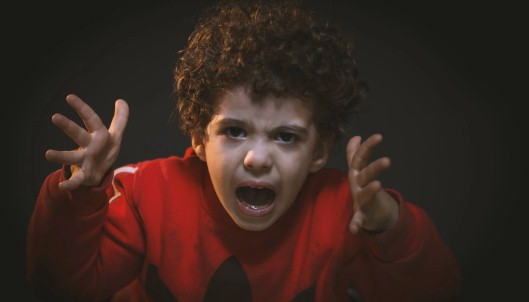Are you dealing with your Child’s Aggressive Behavior? Well… Aggression is the destruction of objects of any kind, including physical or verbal attacks on other people. Aggression can also be directed against yourself, Including Provocation and oppositional behavior.
Aggression in children can be a symptom of many different underlying problems. It is very complex and common to a multitude of different psychiatric illnesses, medical problems, and living conditions.
Why Does Aggressive Behavior Happen?
Behavioral therapy assumes that all aggressive behavior has different models. And the essence of aggression treatments is to first find out what is driving it.
Learning from success:
Aggressive behavior is shown multiple times if it leads to success for the child.
If a boy finds that he is getting his parents’ attention when he forcibly steals toys from another child, then there is a good chance that he will display this behavior more often.
In this case, the child behaves logically and carefully, because then the parents have to take care of him and he gets the attention he wants.
Learning on the model:
This explanatory approach assumes that aggressive behavior is learned by imitating aggressive role models (e.g. parents, media).
If a child experiences violence from their parents or other role models from an early age, He imitates the behavior because they think it is correct.
Aggressive behavior is particularly strongly imitated if it is additionally rewarded.
The media can also help young people to behave aggressively. Not only because of the content glorifying violence in the television program, but also because of the motor constriction and excessive demands from television consumption, this leads to aggressive behavior.
The Causes of Aggression
Here are several causes of Aggressive Behavior you need to know:
Extreme mood
First of all, are there any mood problems? Children who are bipolar very often become aggressive in their manic stages. They lose their self-control and become impulsive.
When they become depressed, although aggression is less common, they can become irritable.
Psychosis
Psychotic illnesses can also manifest themselves with aggression. For example, children with schizophrenia often react to internal stimuli that can be disruptive.
Sometimes children with schizophrenia become suspicious or completely paranoid and end up beating themselves out of fear.
Frustration
Children who have cognitive disorders or communication problems (including autism) can also manifest aggression.
Children with these disorders become aggressive because they have difficulty dealing with their fear or frustration and cannot verbalize their feelings as others do.
Aggression can also be a form of impulsiveness.
Impulsiveness
In children with ADHD (Attention Deficit Hyperactivity Disorder), the most common of them, impulsiveness and poor decision-making can lead to behavior interpreted as aggressive.
These children often do not consider the consequences of their actions, which may appear numb or malicious when in reality they are simply not thinking.
Conduct disorder
In behavioral disorders, aggressiveness is part of the disease. Unlike the child who simply does not consider the consequences of his or her actions, children with conduct disorder are purposely malignant, and the treatments are very different.
Injury
Sometimes there are reasons for aggressive outbreaks when a child has frontal lobe damage or certain types of epilepsy. In these cases, there cannot be any comprehensible reason for the aggressive outbreak.
Trauma
After all, there are times when aggression is caused by stress factors and is not an underlying emotional illness. It is important to understand, however, that this happens quite rarely, and if aggression occurs more frequently, it could be a looming emotional problem.
How can parents deal with an aggressive child?
- Make positive use of aggression and the child’s energy by offering creative ways to reduce it, like by Sports, playing in nature, etc.
- Make clear to the child about the processes and consequences of his aggressive behavior..
- Targeted praise for desirable behavior, ignoring undesirable things, so that the child does not react to aggression.
- Establish clear family rules together and discuss them with the child.
Explain the house rules
Children don’t know the house rules until they learn about them. That is one of your important parental responsibilities.
Consider creating a separate part of your home for your child to play with books and toys.
If children break an important rule, they should be reprimanded immediately so that they understand exactly their wrongdoing.
Threats are overrated
It is always more effective to positively reinforce desirable behaviors and teach some alternative behaviors than simply saying, “Stop or something will happen”.
Tell them that the next time they are angry, they should use their words instead.
Distract the child
While you can teach your child other ways to react, there is nothing wrong with distracting them or trying a different approach.
Teaching words to anger
Remember, toddlers have less natural self-control. Parents need to teach them not to kick, hit, or bite when they are angry, but to use words to express their feelings.
In an addition, read 5+ Simple Hows to Make Children Listen Better
Monitor disputes and intervene in an emergency
Carefully supervise your child when they are involved in arguments with playmates. If a disagreement is minor, keep your distance and let the children resolve it on their own.
However, parents must intervene when children get into a physical fight, or when one child appears to be in uncontrollable anger and attacks or bites the others.
Pull the children apart and keep them apart until they calm down. If the fight is extremely violent, you may need to end the game session.
Make it clear that it doesn’t matter who “started”. There is no excuse for trying to hurt one another.
Instead of fighting
Teach your child to say “no” in a firm tone, to turn away, or to compromise instead of struggling with their body.
Through the example, teach your child to resolve differences with words more effectively than with physical violence.
Praise the child
Praise your child for appropriate behavior and help explain how “adult” behaves using these tactics instead of punching, kicking, and biting.
And whenever you catch your child being kind and gentle, always reinforce and praise his behavior.
Time outs are fine
It’s ok to take time out if your child’s behavior is inappropriate, and use this way on children even as young as one year old.
Control your own temperament
Always pay attention to your own behavior around your child. One of the best ways to teach how to behave appropriately is to control your temperament.
If you express your anger in a calm, peaceful way, your child is likely to follow you.
Stay strong
If you need to discipline your child, don’t feel guilty or make any excuses.
When your child senses your mixed feelings, they will convince themselves that they have been right all along and that you are the “bad guy”.
If disciplining your child is not comfortable, You don’t need to feel guilty about it.
Your child needs to understand when they are wrong, it is important to take responsibility for their actions and be ready to accept the consequences.
You may also read: All You Need About Authoritarian Parenting Meaning, Advantages, Etc
What is the difference between discipline and punishment?
While many parents think that discipline and punishment are the same things, actually they are not.
Discipline is a way of teaching and a way of fostering good parent-child relationships.
If you are disciplining, you should provide your child with praise and instruction in a solid tone to improve their behavior.
Punishment is a negative aspect where you dish out an unpleasant consequence if your child does or doesn’t do something.
Punishment is part of the discipline, but it’s only a small part.
Until the age of three, or sometimes more, children just don’t understand the concept of punishment.
Setting boundaries is a much better approach than punishment; most children will respond to clear, calm, and determined boundaries.
When should you call the pediatrician?
If your child seems unusually aggressive for more than a few weeks and you cannot cope with their behavior, see your pediatrician.
Other warning signs are:
- Attacks on you or other adults
- Physical injuries to yourself or others (tooth prints, bruises, head injuries)
- To be sent home or excluded from the game by the neighbors or school.
- Your own fear for the safety of those around you.
The main warning sign is the frequency of the outbreaks. Sometimes behavioral children can go uneventfully for several days or a week or more, and may even be quite charming during that time, but few can hold out for an entire month without getting into trouble at least once.
Once you find several effective ways to reward good behavior and prevent bad behavior, so use them to establish a course of action that works at home.
The best way to prevent aggressive behavior is to give your child a stable, safe life at home with firm, loving discipline, and full-time supervision during toddler and preschool years.
Learning to deal with feelings
Children must learn to express their feelings in a good way, for example by talking about them. That is not always easy.
Is the behavior going too far?
Your child needs to learn to stand up for themselves, but berating someone or kicking someone directly at a shin is a different matter. The child then really wants to hurt someone else, perhaps even for no reason at all. And that’s not part of it!
Bullying, humiliating, calling names, threatening, and excluding another child is aggressive behavior.
Other Tips to handle your Child’s Aggressive Behavior
- If your child is aggressive, intervene immediately, but remain calm and never hit.
- Make your child look at you and tell them what behavior to stop.
- Also ask your child why he is behaving this way. If it doesn’t say that, try to discover the reason for the aggression yourself.
- Explain why your child should not hit. Share how this feels for the other person. As a result, your child develops a conscience.
- Disapprove of your child’s behavior and not your child himself. So say, “I hate your kicking,” not, “I hate you.”
- Be clear. Indicate your limits and attach consequences (consequences) to the behavior.
- Give your child positive attention if they follow the rules.
- You can reward your child when he behaves well.
- Lead by example: show how you solve problems and never yell or hit yourself.
- Finally, ‘sorry’ is of course also important.
- Search for help
Sometimes it is not possible to reduce your kid’s aggressive behavior. It can then have a lot of influence on your family and how you feel about yourself.
If you’re concerned about persistent aggressive behavior, it’s best to contact your doctor or your local youth health care provider. If abusive, negative, aggressive, and hostile behavior lasts longer than four months, there may be a psychological problem.
In many municipalities, you can take a parenting course in parenting skills. This often works well at this age. Not because you as a parent are the problem, but because you can help your child of primary school age to deal with behavioral problems.












